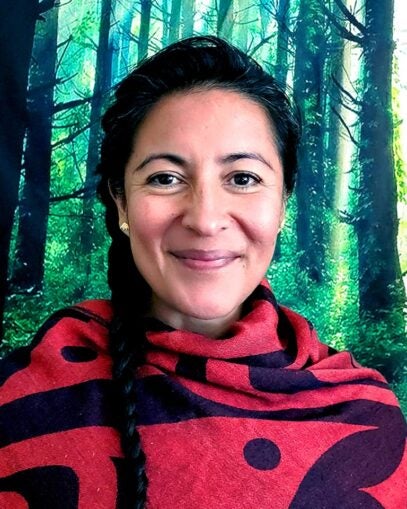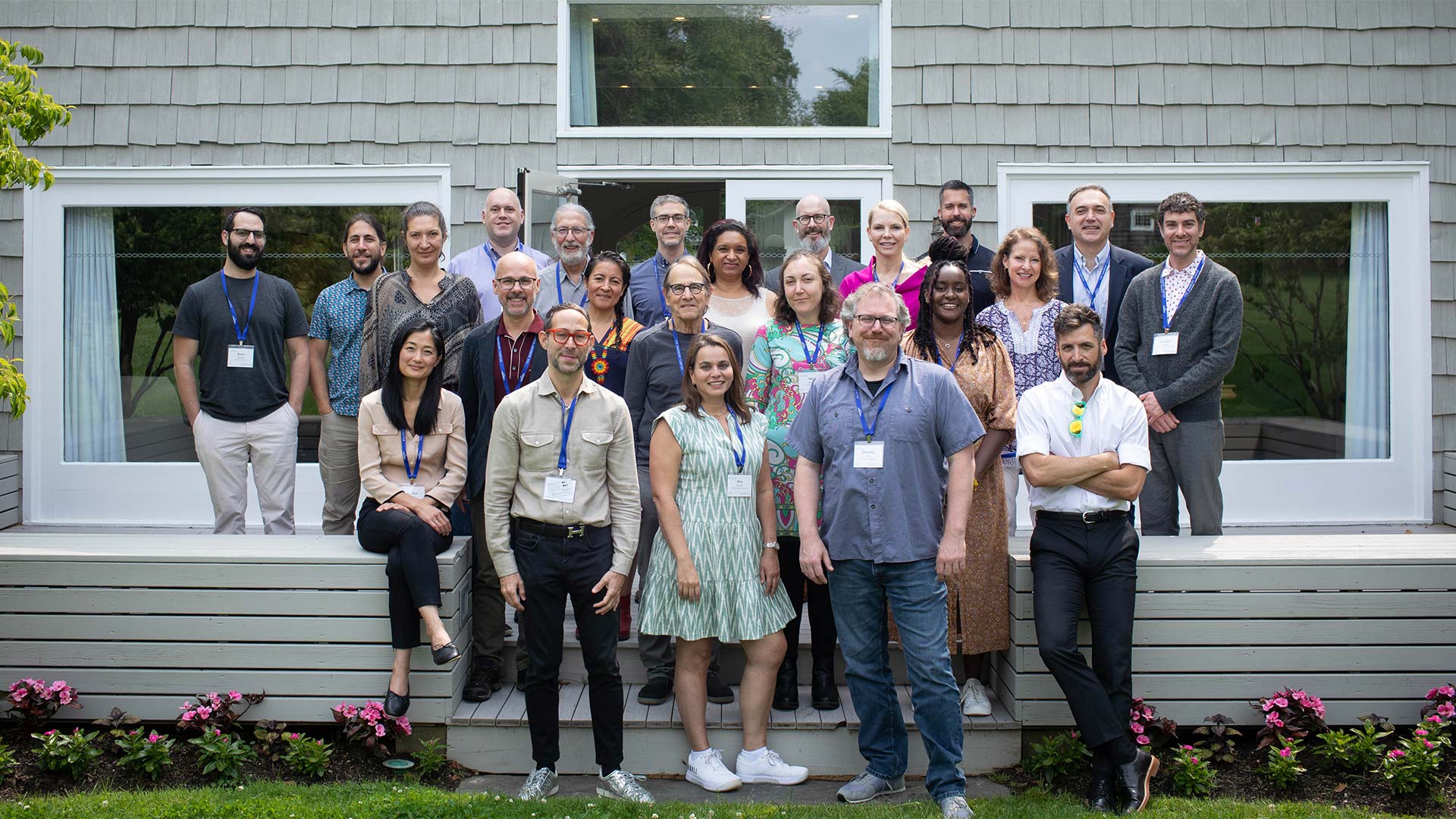In June 2023, the Banbury Center welcomed experts for “Developing an Ethical Framework for Psychedelics Research and Use.” During the meeting, I had the opportunity to speak with Yuria Celidwen, Ph.D., who is a postdoctoral researcher at the University of California, Berkeley, and a senior fellow at the Othering & Belonging Institute, where she is bridging Indigenous and Western epistemologies while advancing the rights of Indigenous Peoples and the rights of Nature. She works on the intersection of cultural psychology, contemplative studies, and Indigenous studies. For the past two decades, Dr. Celidwen has worked at the United Nations, concentrating on the defense of the rights of Indigenous Peoples and the rights of Nature. In addition, she co-chairs the Indigenous Religious Traditions Unit of the American Academy of Religion. We spoke about her journey to reclaim, revitalize, and transmit Indigenous wisdom for social and environmental justice.

Can you tell me about what you do in, more or less, two sentences?
Pialli. Quen otlathuililo. Nehuatl Notoca Yuria. Nichanti nicān Mexihco Nahuatlahtolli, Mayatlahtolli Chiapas.
Bamé ayesh. Wocol awalik yu’un telabai bekón te’jkopé, yu’un te taleshé. Yatik ya jletik ya’telinel kuxinel. Ta swenta te ayik ta uninele.
You just read my Indigenous Nahuatl and Maya Tzeltal languages. I always try to put these languages first, before anything else. I introduced myself – my name is Yuria Celidwen – and I brought honor to my lands; I was born in the highlands of Chiapas in Mexico. I also honored my Ancestors. When I say Ancestors, it means not only my bloodline, but all of our Relatives within our landscapes and sacred systems. With that, I have pioneered the field of Indigenous contemplative sciences, and have been working on the intersection of Indigenous studies, cultural psychology, and contemplative sciences, for the aim of what I call epistemological equity. This means bridging Indigenous sciences – plural, to show the great array and diversity of Indigenous worldviews – and Western science. The bridge looks to find joint solutions to our imperatives – from the social epidemics, such as mental health, to the climate emergency.
I am carrying out a multi-year project at the University of California, Berkeley, looking into Indigenous forms of contemplation that enhance reverence for Mother Earth. Also, I have been working for the defense of the rights of Indigenous Peoples and the rights of Nature at the United Nations for the past two decades – with previous years consulting for countries in transition to democracy. I am a scholar, practitioner, activist, and educator who supports the transmission and preservation of Indigenous wisdoms and ways of being. I do this work to maintain the great diversity of knowledge, as well as promote the understanding that this diversity of knowledge is a great determinant of planetary health.
What is your favorite part about what you do? What gets you excited to go to work?
My work at the United Nations for the defense of the rights of Indigenous Peoples and the rights of Nature has been a result of my commitment to the wellbeing of more than five thousand different Indigenous Nations living in around 90 countries worldwide. Now, I am transitioning to the University of California, Berkeley, to carry out research on Indigenous contemplation and reverence to Nature. I am also a senior fellow of the Othering and Belonging Institute, working for the civil rights and civil liberties of Indigenous Peoples through the preservation of our wisdoms. It is truly my dream work to show Indigenous forms of contemplation as very sophisticated systems, and true pathways for the development of awareness and consciousness. They transform our sense of identity from one of individual interest and isolation to one of collective behavior that focuses on reciprocity and wellbeing for the whole of the planet.
I’m really excited to be doing this work that I have been doing for the past couple of decades, but now within an academic setting that is supporting the advancement of this research on a very deep level. I am also working directly with Indigenous communities in different regions – each with very different landscapes – that are currently threatened by the climate emergency. I am trying to ensure that the benefits return to these communities first, and then their wisdoms can be shared with other Indigenous and non-Indigenous communities; this way, we all generate a very deep reverence for the planet.
What are some of the challenges you face in your work – specifically, when bridging Indigenous and Western epistemologies?
It’s extremely challenging on different levels. First, there is the bridging of two very different ontologies. One is within Indigenous traditions that is very based on community wellbeing, reciprocity, understanding of intersubjective transformation, and what I call, “kin relationality,” or the understanding that we perceive all other beings in the universe – including phenomena – as our Relatives. These ways of being create a deep sense of responsibility within the larger system of beings, which I named “ecological belonging.” Whereas within the Western system, we are mostly focused on individual wellbeing and in-group benefits. These are very different ways of seeing the world; the Western side is extremely objective and based on metrics, and there is a separation of the self from the phenomena, which creates a sense of control or ownership. So, these are very contrasting ontologies and epistemologies. Trying to bridge the two creates problems in terms of understanding what ontology and epistemology are. But my aim is that we see the two as very complementary to each other, and we realize that they can bring us to a greater sense of collective awareness and collective wellbeing. At a moment, we must focus on planetary wellness, not just human wellness.
What sparked your interest in the convergence of Indigenous studies, cultural psychology, and contemplative science?
I was born and raised in the land that was called “Coelhá,” which translates to, “the Wonderland of Flowing Waters.” My family lineage is one of Tzunujeles, or Spirit medicine practitioners, in our language. We are profoundly connected to the systems of Mother Earth; through which our sense of reverence is enhanced, and we encourage a keen understanding of how our presence influences our world, as well as how we are influenced by every Relative around. It is a system network; we are not just atomic beings who are isolated and working for our own; rather, we are part of a whole system that is growing, sharing, loving together. Thus, because we live through caring, we are responsible for the wellbeing of each other. Having been born and raised within this Indigenous way of being made me understand that we are all very connected and dependent on each other. Moreover, we have an agency to empower our wellbeing and help each other become better presences in the world. This is a contemplative way of living: an ethical way of living. My upbringing is at the core of this quest.
This is your first time at the Banbury Center. What do you think of the meeting so far?
I came feeling truly worried, cautious, and dreadfully suspicious, because I have written academic papers about the humongous and multilayered problematics of the extraction and appropriation of Spirit medicines in the West – what is the field of “psychedelics.” I was not sure what to expect. It is a field that constantly perpetuates violations to the rights of Indigenous Peoples and our tangible and intangible heritage. This meeting has allowed me to continue my work of dialoguing between Indigenous representatives and Western scientists in this field. This way, we can work together to bridge these different ontologies and benefit larger communities. However, it is a very tricky terrain, where reparations to Indigenous communities and trust-building initiatives should go before aiming for joint work.
To this day, the West is extracting, capitalizing, and corporatizing Indigenous Peoples and Mother Nature. The West sees the whole planet and living beings as resources, rather than subjects that are living, feeling, and responsive. Coming here, bringing these concerns, and seeing the receptivity of the participants, who seem to genuinely try to understand these problems and take them very seriously – shows that we can continue to advance and create a field that is truly ethical, contemplative, and transformative. We have the opportunity to transcend this narrow view of humans as isolated beings, and become much more collective, caring beings for the whole of the planet.

